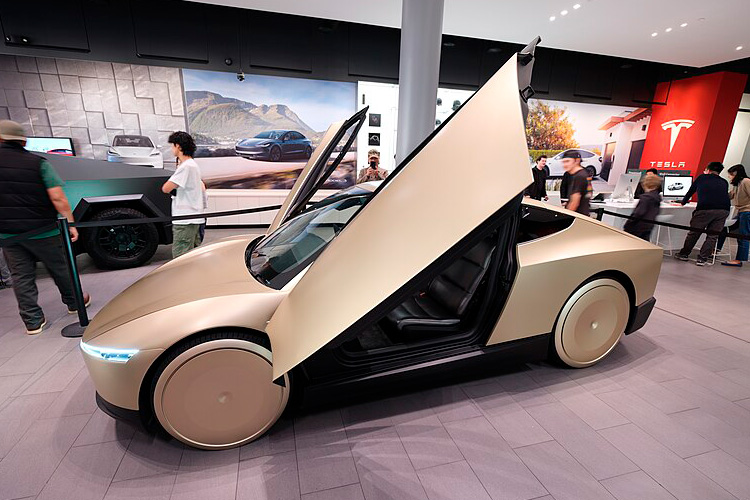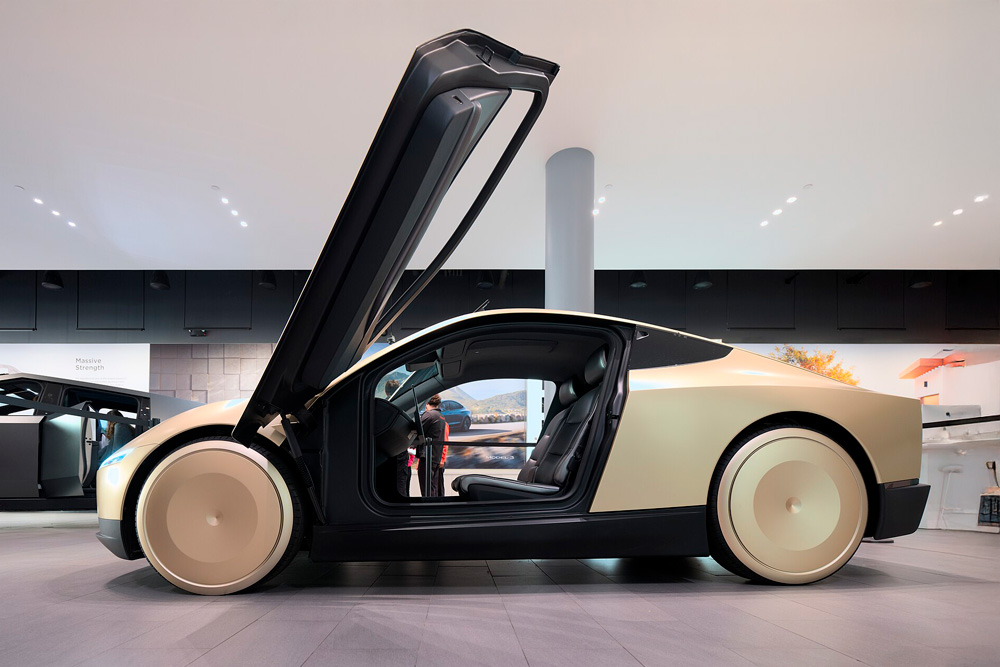S h a r e
10 Facts You Probably Didn’t Know About Electric Vehicles


Posted by
Kevin Blackmore
February 2025
Electric vehicles are one of the most talked-about topics in the motoring industry today. The Uptake of electric vehicles is booming and is set to increase exponentially over the next couple of years. Official statistics show that EVs will eclipse petrol and diesel cars by 2028 (more below). However, although we hear about electric vehicles almost every day, there is a lot we don’t actually know about them.
1. The first electric car was Invented nearly 200 years ago!
Electric cars may be gaining popularity now, but the idea of the first self-propelled vehicle dates back to 1832! A Scottish inventor named Robert Anderson built the first electric-powered vehicle prototype in 1832. It was a basic cart with a single electric motor and non-rechargeable power cells. However, Thomas Parker built the first production car with rechargeable batteries in 1884, with further advances made by Gaston Planté.
2. Manufacturers must add fake ‘engine’ noise to electric vehicles.
Despite being completely silent, electric vehicles are required to make an artificial noise. This is because cars are so quiet that they can be a risk to pedestrians who may not see the car coming. The EU has made this mandatory for hybrid and electric vehicles that travel under 19 mph (30 km/h).
3. There are more charge points in the UK than petrol stations.
As of December 2024, the United Kingdom had approximately 73,421 public electric vehicle (EV) charging points. In contrast, the number of petrol stations in the UK has been steadily declining over the past few decades. As of 2024, there were around 8,000 petrol stations remaining. This indicates that EV charging points now significantly outnumber petrol stations in the UK.
4. Electric vehicles could be charged whilst driving.
Just like mobile phones can be charged wirelessly by placing them on a pad, electric vehicles could soon be charged whilst driving. This could be achieved using embedded charging points in roads or inductive charging lanes, similar to those used in some wireless electric bus charging projects.

5. We could soon be hailing robotaxis.
In October 2024, Tesla unveiled the Cybercab (pictured above), a prototype robotaxi designed without a steering wheel or pedals, emphasising the company’s commitment to a fully autonomous future. Tesla aims to commence production of the Cybercab before 2027.
6. Electric vehicle registrations have grown by over 10,000% since 2013.
Based on data collated by Zap-Map, EV registrations in the UK have grown by approximately 10,550% from 2013 to 2024.
7. Battery costs are falling exponentially, making EVs more affordable.
The most expensive part of an electric vehicle is the battery. However, the cost of lithium-ion batteries has fallen by around 80% since 2010. This price drop is expected to continue, making EVs more affordable and comparable to traditional fuel-powered vehicles.
8. New battery technology could theoretically extend EV range to over 3,000 miles
Scientists at Pohang University of Science & Technology have found a way to multiply a battery’s energy storage by ten to create the ideal EV battery. It’s a long way from reality, but the pace at which battery technology is improving suggests that we’ll be driving EVs further per charge than petrol or diesel could ever manage on a full tank.
9. Maintenance and repair is much lower than conventionally fueled cars.
Electric cars have fewer moving parts than conventional vehicles powered by petrol or diesel. Fewer components can fail, leading to lower maintenance and repair costs.
10. Sales of electric vehicles are expected to pass ICE vehicles by 2028
As of 2024, electric vehicles (EVs) accounted for 20% of new car registrations in the UK, with sales reaching 25% in the final quarter of the year. Projections indicate that EV sales are expected to surpass those of internal combustion engine (ICE) vehicles by 2028.
You also might like…
If you liked this article then check out our posts about similar topics
First Drive: Why Audi’s Q4 e-Tron matters
The Company Car Sweet Spot for future-proofing your Fleet An Audi badge says professional without drifting into show-of...
First Drive: Jaecoo 7 – Range-Rover Looks on a £30k Budget
Why this newcomer matters China’s Chery Group is taking the UK by storm with a two-brand strategy: Omoda targets mains...
Good-enough lease rates aren’t good enough anymore: Introducing Multi-Bid Tendering
In a climate of persistent inflation, unpredictable tariffs and relentless cost pressure, “we’ve always done it this...
Become a Fleet Alliance business partner
I am writing to you about the opportunity to become a business partner of Fleet Alliance The commercial arrangement a...
Charting a Greener Course: Chris Rowthorn signs the Business Wales Green Growth Pledge
When seasoned automotive finance professional Chris Rowthorn left MotoNovo after more than two decades to become a Flee...
Outsourcing Your Fleet: 10 Reasons Fleet Alliance Makes Perfect Sense for Busy Fleet Managers
Running a large corporate fleet means you’re under constant pressure to hit cost, compliance, and sustainability targe...
What makes Fleet Alliance a winner in the SME fleet sector?
We all like an award, an additional trophy for the cabinet - the recognition is important and it’s always good to rece...
10 great cars to have on salary sacrifice 2025
Employers and employees are really catching on to salary sacrifice because you can drive a brand new electric car (EV) a...
Ready to make the management of your fleet more efficient?
Request a call back
